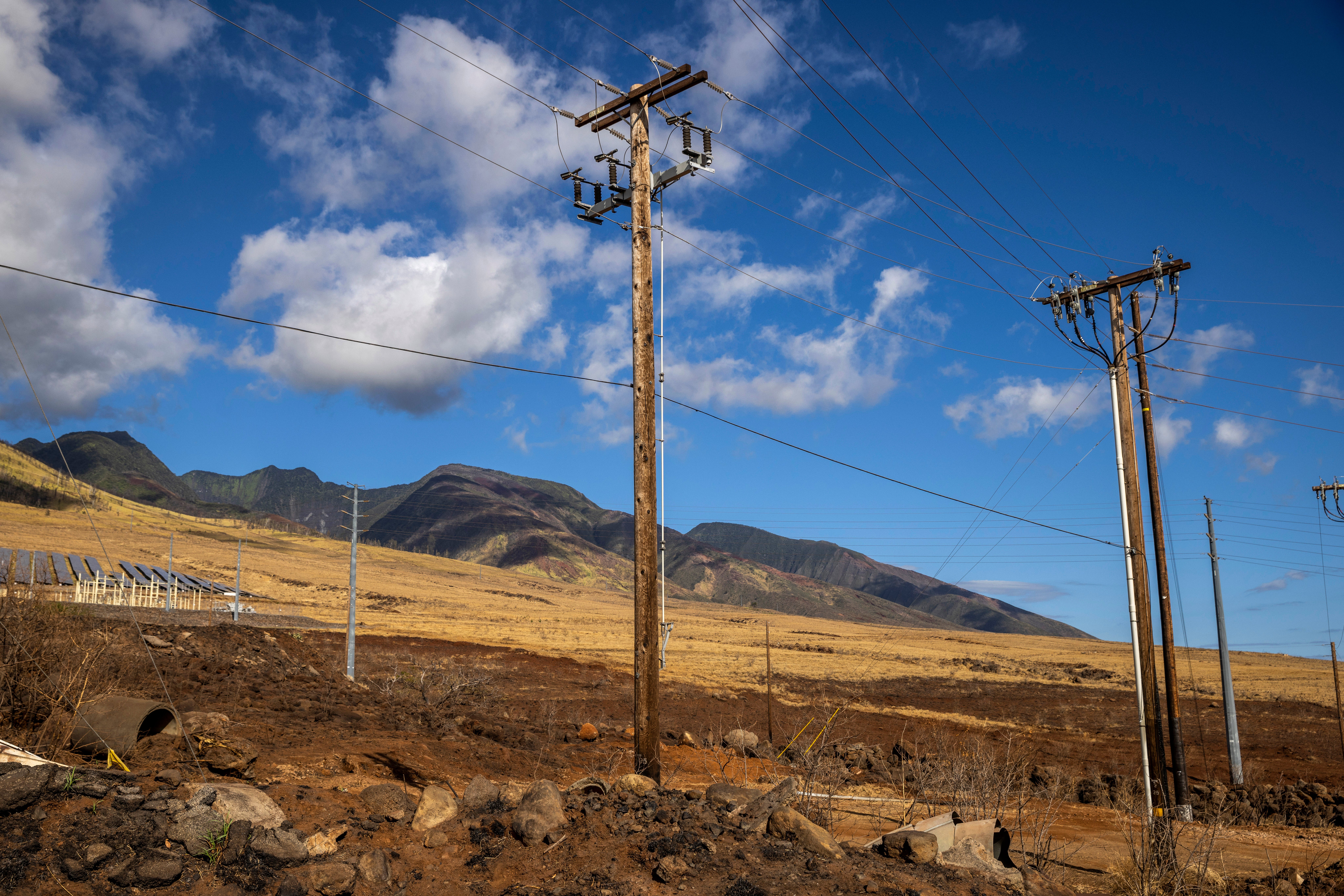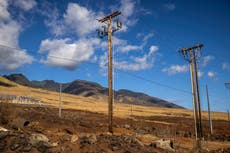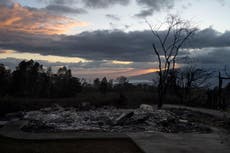The climate crisis is shutting down our cities
From snow days to heat ‘holidays’, climate change is shutting down cities as power runs out, writes David Callaway


In Los Angeles last Sunday, city officials warned residents to stay inside and off the roads ahead of the first tropical storm to roar through southern California in 84 years, as power went out for thousands of people.
In Italy this week, 17 cities warned residents and tourists to stay inside during the day as temperatures approached 48C. France is warning people in the southeast to stay indoors this weekend as extreme heat threatens output from two nuclear plants on the Rhone River. And Iran declared a two-day “public holiday” earlier this month to close the economy over fears electrical output wouldn’t keep up with air conditioning as the heat hits new highs.
Around the world, including in fire-stricken Maui, climate disasters and extreme heat are not only wreaking havoc this summer – they are starting to shut down economies as governments struggle to provide enough energy to keep pace with air conditioning demand.
It’s shelter-in-place, climate style. The old snow days, where children could skip school and play in the drifts a few times each winter, are now replaced with heat holidays as relentless extreme heat threatens not just health but economic infrastructure.
It started this summer, and soon we might see it play out in economic output figures in countries across Europe and in some parts of the US. More threatening than taking days off work – many of us work remotely now anyway – are the threats to power infrastructure.
Spikes in demand for more cooling systems, which destabilise power grids, combined with warming waters that prevent some nuclear reactors from cooling, are causing severe power shortages at the wrong times.
To make matters worse, high winds tied to hurricanes are ripping down power transmission wires and starting fires, like in Maui. This in turn is causing lawsuits and stock plunges at public utilities, such as Hawaiian Electric Industries, which lost 70 per cent of its value last week.
In a new report out this week, the Intergovernmental Panel on Climate Change (IPCC) estimated that more than half of Europe’s population will be exposed to high levels of heat stress each summer by 2050 – especially children, seniors, those with pre-existing health conditions, and lower-income groups. The middle of America and parts of the West Coast face similar futures, as do countries in Latin America, Asia and Africa.
The heat isn’t going away. But the economic risks seem to be building even faster. Great shipping waterways such as Germany’s Rhine River, the Rio Grande in Texas, even the Panama Canal itself, are in crisis as lack of water threatens activity.
Such stoppages move directly to the bottom lines of companies, and the banks and asset managers who fund them. Fifteen years after mortgage rates caused a global financial crisis that brought some countries, such as Iceland and Greece, to their knees, the world now faces the potential for an economic crisis that could be both financially hobbling and deadly to some.
All of that said, there is reason to be optimistic. Climate statistics tend to depress, and cause many to turn their heads. So it’s useful to point out that money is pouring into renewable energy at record rates – mostly wind and solar, but also things like nuclear and geothermal. BloombergNEF, a noted energy researcher, said in a report last week that renewable energy investment rose 22 per cent in the first six months of this year to $358bn (£285bn), spurred by programmes such as the Inflation Reduction Act in the US.
The nascent climate finance industry is coming to life, but with each new disaster the goalposts get moved again. It’s a race against time and the legacy of the pollution we’ve already put into the atmosphere right now.
One thing that seems certain is that, three years after the worst of Covid shut down the global economy, we aren’t done with shelter-in-place regulations just yet.






Join our commenting forum
Join thought-provoking conversations, follow other Independent readers and see their replies
Comments